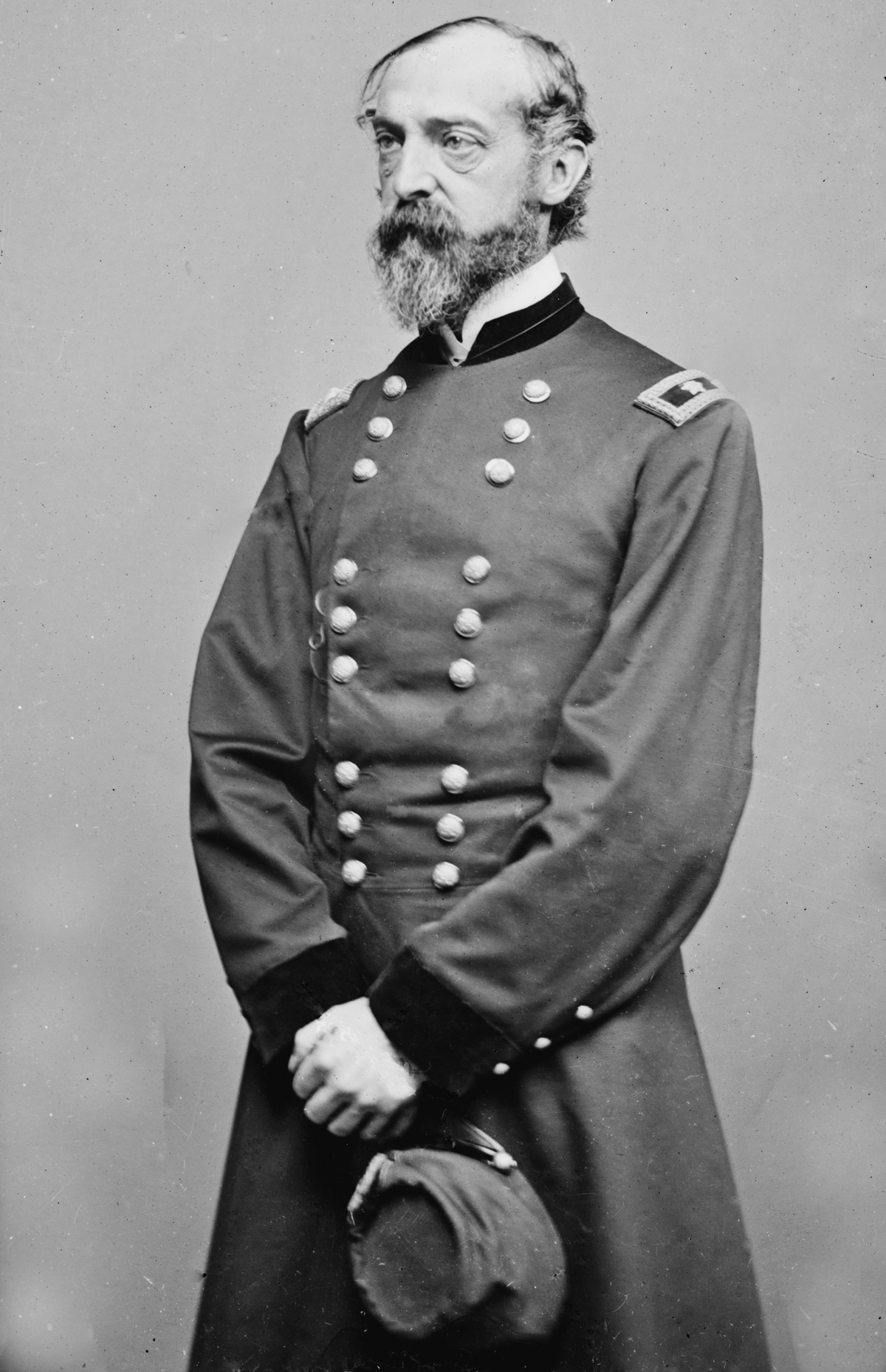ANGLOS AWEIGH
Posted: Sat Sep 28, 2013 8:12 am
ANGLOS AWEIGH
To Mr. Henry A. Cram, New York
CAMP PIERPONT, VA., February 11, 1862.
Some few days ago I had an invitation from General McCall to lunch with him, which I accepted. McCall thinks France and England will recognize the Southern Confederacy and interfere in their behalf. I was not of his opinion, unless we should fail in the next six months to make any further progress in suppressing the revolution. McCall responded that he doubted it would not take longer than six months or less for such a General-in-Chief as McClellan to fail, which I found most encouraging.
Indeed, last evening I called with a friend at McClellan’s house but we were told at the door that he was indisposed. We then repaired to a liquor store kept by the author Mr. Fred. S. Cozzens, who finds liquor selling more profitable than literature. Having read his work I confess to an unworthy hope that he should not sire any offspring with literary pretensions, as such a small talent is sure to peter out in successive generations.
At Cozzen’s I was introduced to a member of Congress and others, discussed a bottle of champagne and then another of claret, and talked over the affairs of the day. Much interest in regard to foreign intervention was expressed. It was soon merrily resolved that when the present rebellion was dealt with, an invasion of Canada would be mounted, this being preferable to a repeat of our Mexican adventure, should the truculence of the French lead to their intervention there.
As to the British, we have had one or two John Bulls visit our camps. You would have been delighted to see the admirable display of whiskers, fine clothes, etc. Entre nous, the accents and attitudes of these worthies render their disastrous perambulations in the Crimea more readily understandable.
It seems we have little to fear from such dandies whereas their Navy may be composed of more resolute and dangerous stalwarts. I recall your enthusiasm for the “Jolly Jack Tars” whom you met when one of Her Majesty’s ships was berthed in Brooklyn Yard. Do you not think they are altogether harder men than their counterparts of the army?
The feeling here is one of hope despite the aching of certain heads this morning. There, I have told you the whole of my town spree.
To Mr. Henry A. Cram, New York
CAMP PIERPONT, VA., February 11, 1862.
Some few days ago I had an invitation from General McCall to lunch with him, which I accepted. McCall thinks France and England will recognize the Southern Confederacy and interfere in their behalf. I was not of his opinion, unless we should fail in the next six months to make any further progress in suppressing the revolution. McCall responded that he doubted it would not take longer than six months or less for such a General-in-Chief as McClellan to fail, which I found most encouraging.
Indeed, last evening I called with a friend at McClellan’s house but we were told at the door that he was indisposed. We then repaired to a liquor store kept by the author Mr. Fred. S. Cozzens, who finds liquor selling more profitable than literature. Having read his work I confess to an unworthy hope that he should not sire any offspring with literary pretensions, as such a small talent is sure to peter out in successive generations.
At Cozzen’s I was introduced to a member of Congress and others, discussed a bottle of champagne and then another of claret, and talked over the affairs of the day. Much interest in regard to foreign intervention was expressed. It was soon merrily resolved that when the present rebellion was dealt with, an invasion of Canada would be mounted, this being preferable to a repeat of our Mexican adventure, should the truculence of the French lead to their intervention there.
As to the British, we have had one or two John Bulls visit our camps. You would have been delighted to see the admirable display of whiskers, fine clothes, etc. Entre nous, the accents and attitudes of these worthies render their disastrous perambulations in the Crimea more readily understandable.
It seems we have little to fear from such dandies whereas their Navy may be composed of more resolute and dangerous stalwarts. I recall your enthusiasm for the “Jolly Jack Tars” whom you met when one of Her Majesty’s ships was berthed in Brooklyn Yard. Do you not think they are altogether harder men than their counterparts of the army?
The feeling here is one of hope despite the aching of certain heads this morning. There, I have told you the whole of my town spree.

